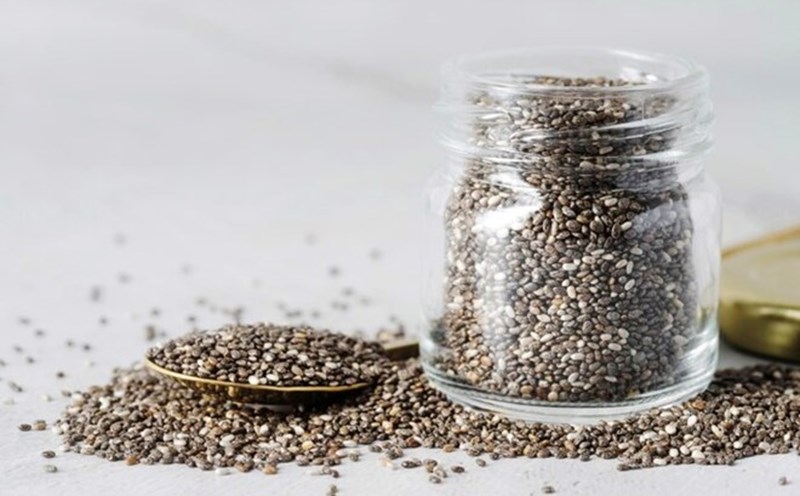Chia seeds are one of the most popular "superfoods" today thanks to their high nutritional content, supporting weight loss, improving skin and improving overall health. However, not everyone is suitable to use this type of seed. Allergies, constipation and skin irritation are potential side effects that consumers need to be aware of before including chia seeds in their daily diet.
According to the American Academy of Allerology, Asthma and Immunology (AAAAI), people with allergic conditions should be especially careful with chia seeds. If you have ever reacted to chia seeds as itchy, red, or skin irritation, stop using both dietary supplement and skin oil immediately, the AAAAI report emphasized. Allergic symptoms can include rashes, swollen lips, itchy throat, and in some severe cases, can cause anaphylactic shock.
Another common problem is constipation when chia seeds are consumed incorrectly. Due to their high water absorption ability, chia seeds can absorb moisture in the intestines, leading to dry stools and making it difficult to pass if eaten too much without supplementing enough water. To avoid constipation, soak chia seeds in water for at least 4 - 8 hours before use, says nutritionist Pooja Kedia, working at Cloudnine Group of Hospitals, India. At that time, they will expand into a gel, making the intestines easier to digest".
Not only does chia seeds affect digestion, chia seeds can also cause skin irritation when used as masks or in natural skin care products. If you notice redness, itching or burning sensation after applying a product containing chia seeds, you should stop using it immediately. Even natural ingredients can cause a reaction if your skin is not suitable for them, says dermatologist Lisa Moskovitz, CEO of The NY Nutrition Group, USA.
In addition, people who are being treated for chronic diseases or taking medication should consult a doctor before taking chia seeds. Dr. Sohaib Imtiaz, a preventive medicine expert in the UK, warned: Fried chia seeds can interact with blood thinners, diabetes medications or blood pressure medications. For thyroid patients, the high fiber content in chia seeds can also affect drug absorption."
A study published in the journal Biomedical Reports also recommends that chia seed supplementation should be personalized according to each person's health status, instead of being widely consumed as a "pharmotherapy".
Chia seeds are still a great source of nutrition if used properly and to the right people. However, like any functional food, superfood cannot replace the professional opinions of doctors or nutritionists. Listen to your body and consult an expert if you have any doubts before using it regularly.











